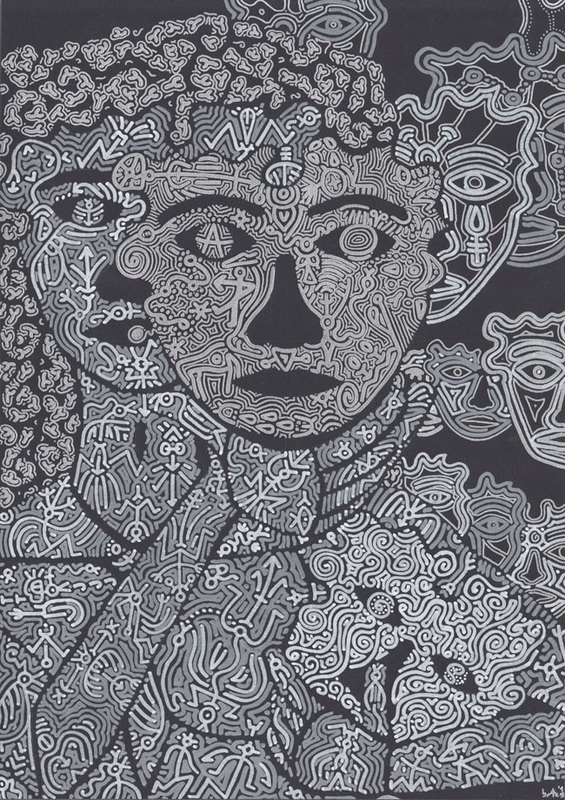Campbell's mythic definition of a symbol as being that which is “transparent to transcendence” established as basic formulation that a fundamental property of a symbol is extension of reference, that is to say, it moves beyond the directly perceptible or immediately verifiable into an unseen realm of meaning. McBrearty & Brooks mirrored this with a more functional definition as the cognitive ability to substitute people, objects and ideas with arbitrary referents, whose meanings are made real through cultural practice.
|
After another blog hiatus - things have been busy here - we continue with the serialisation of my essay (and soon to be 340-page book!) 'On Vision and Being Human', in which we examine a central organising principle of human cognition that leads to the expectation of hidden worlds. To a certain extent, this chapter takes a strongly social view of religious forms, but as we proceed, deeper and more enriched purviews will be taken. Future posts on Archaic Visions will consist exclusively of extracts from this essay for the next few months - due to project work, the 'stand-alone' essay part of this blog will resume in the autumn - and exciting news on the publication of the book version of 'On Vision and Being Human' will follow later this summer! It is at this point, as we draw near to a threshold over which, once passed we will come to a revolutionary new understanding of ourselves as humans, that we should take a moment to review precisely what we mean by symbolism and how it is proposed that symbolic cognition takes place in human culture. We have so far been working with three functional definitions of symbolism, whose inspiration springs from three very different fields of study.
Campbell's mythic definition of a symbol as being that which is “transparent to transcendence” established as basic formulation that a fundamental property of a symbol is extension of reference, that is to say, it moves beyond the directly perceptible or immediately verifiable into an unseen realm of meaning. McBrearty & Brooks mirrored this with a more functional definition as the cognitive ability to substitute people, objects and ideas with arbitrary referents, whose meanings are made real through cultural practice.
3 Comments
|
ARCHAIC VISIONS
|




 RSS Feed
RSS Feed






